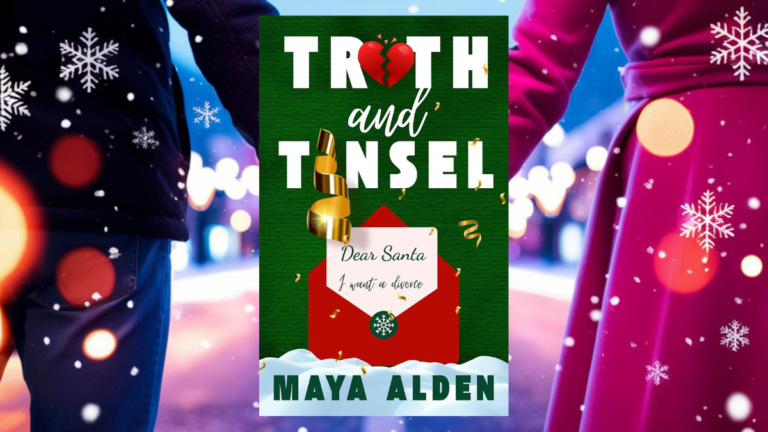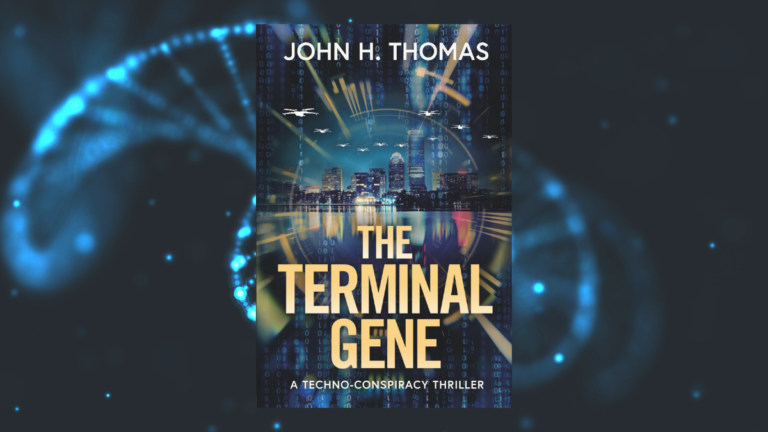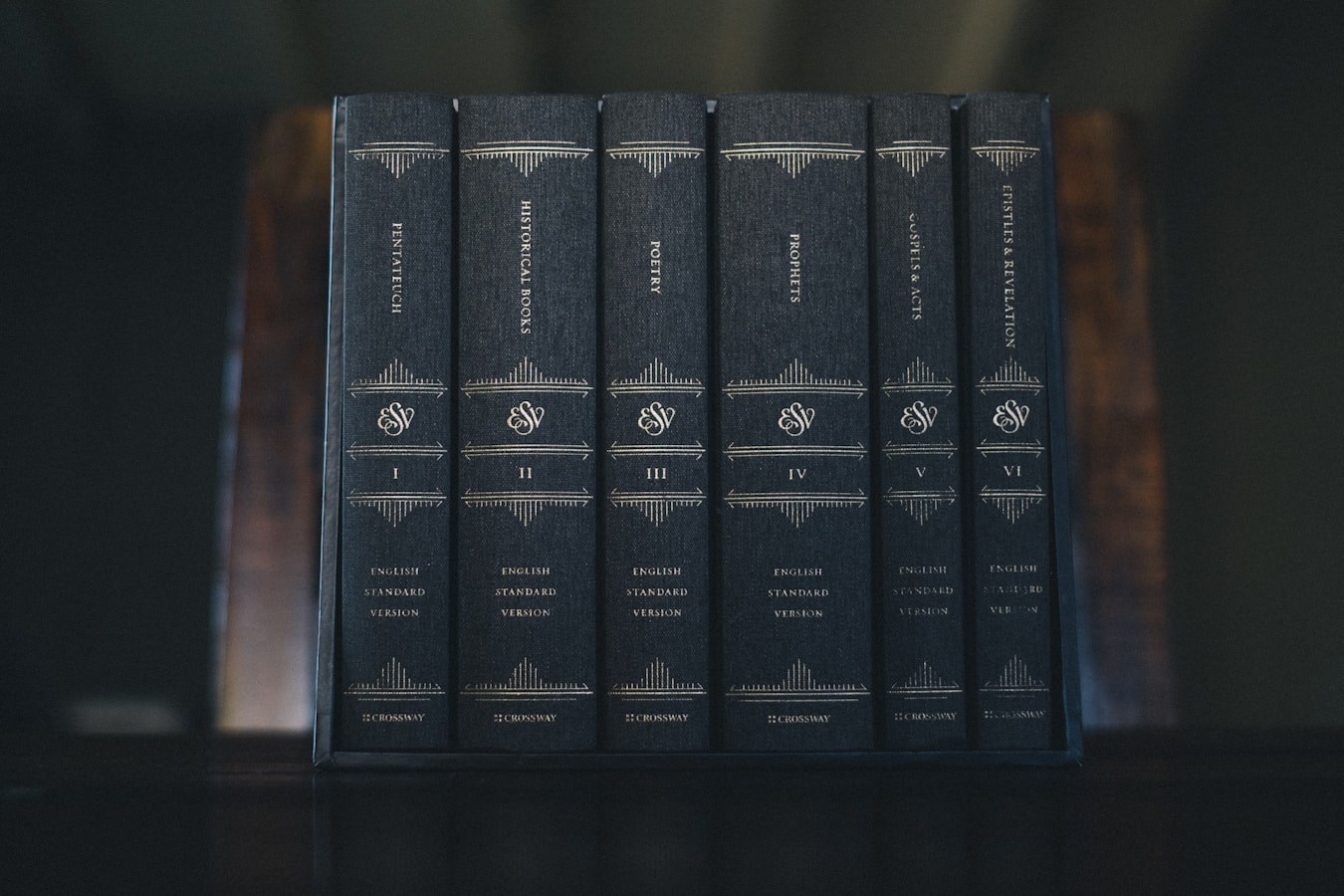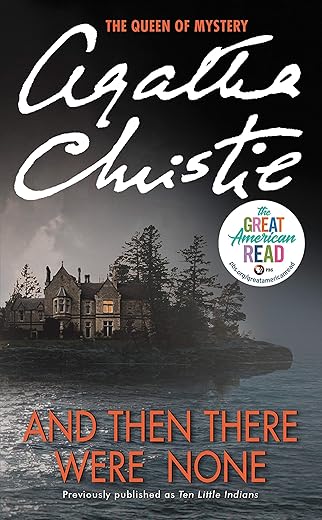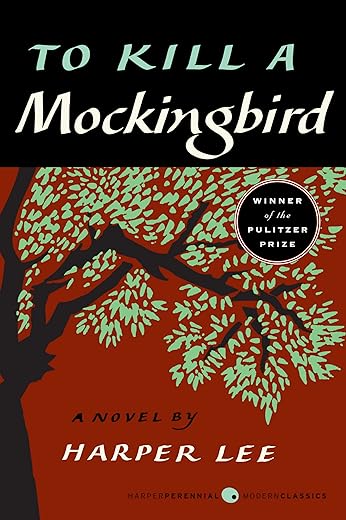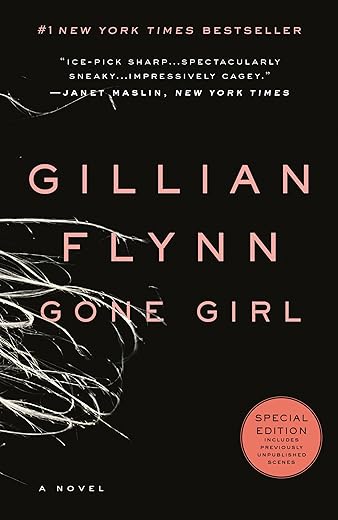Read every series in the right order

The Chosen by Chaim Potok – Friendship, Faith & Fatherhood in 1940s Brooklyn




I put The Chosen on my to-read list “for a minute” — which is to say, for long enough that it became one of those slightly embarrassing gaps in my reading life. I knew Chaim Potok’s debut (1967) had been a cultural touchstone, I knew there was a sequel (The Promise, 1969), and I knew people spoke about the book with the kind of quiet reverence reserved for works that change how you see your neighbors and yourself. What I didn’t expect was how quickly it would pull me in — and how emotionally direct it would feel, even after all these years.
Potok sets his story in mid-1940s Brooklyn, in the final months of World War II and the raw aftermath that followed. Within a few blocks of one another live two Jewish communities that share a sacred heritage but differ in practice, emphasis, and worldview: a Hasidic sect led by a charismatic, formidable rebbe, and a Modern Orthodox world of rigorous study that also engages with secular scholarship and the wider American conversation. Our guide is Reuven Malter, who narrates the story from the vantage point of adulthood, looking back at the friendship that re-routed his life.
The novel’s opening is deceptively simple: an inter-yeshiva baseball game. It’s such an American beginning — leather gloves, dust, sun — and for a moment you could be in any coming-of-age tale. Then the line drive comes off the bat of Danny Saunders, the brilliant son of the Hasidic rebbe, and it slams into Reuven’s face, shattering his glasses and sending him to the hospital. From that accident, from pain and apology, grows one of the most unlikely and consequential friendships in American literature.
Reuven and Danny learn each other’s languages: the dialect of Hasidic fervor and silence, the dialect of Modern Orthodoxy and argument; the cadence of Talmud pages rustling; the shock and grief that roll in from Europe; the fierce debates about Zionism and the future of a Jewish homeland.
I’ve read plenty of “school novels” and “friendship novels.” This isn’t a school story with a synagogue attached, nor is it a simple buddy tale that happens to feature boys who wear yarmulkes. It’s a portrait of two sons who love their fathers and must nevertheless choose lives that the fathers may not have wanted for them; it’s about loyalty and conscience; it’s about the courage to see the world clearly when seeing hurts. Potok’s prose is unfussy and intensely readable — that’s part of its secret — and it lets the big questions breathe: What is faith for? How do we honor tradition without being smothered by it? Who are we to each other when our truths conflict?
If you’re wondering whether The Chosen “holds up,” my short answer is yes — not because it’s trapped in amber as a perfect period piece, but because it’s alive. I finished it in a weekend and felt that tug you get with the books that matter: the small ache that says, “I’m going to be living with this for a while.”
Table of Contents
Why The Chosen
There are lots of reasons to read The Chosen now, and most of them have very little to do with checking a classic off your list. Here’s what made it urgent for me:
- 1) It shows difference without turning it into caricature.
We live in a time that loves to sort people — by politics, by piety, by neighborhood, by algorithm. Potok lets us inhabit two close, sometimes clashing worlds from the inside. The Hasidic community here is not a mysterious monolith, and the Modern Orthodox school is not a set of stereotypes about “modernity” and “compromise.” Instead we meet actual people carrying actual convictions: fathers who love their sons enough to risk being misunderstood by them; sons who love their fathers enough to question them. The friction is real; so is the affection. - 2) It is both deeply Jewish and broadly human.
If you grew up Jewish, parts of this book will feel like home; if you didn’t, they’ll feel like an invitation. Potok refuses to translate everything and still somehow makes you feel you understand it. I don’t read Aramaic and I don’t daven three times a day, but I recognized the heat of an argument that isn’t about “winning” so much as reaching a truth big enough to hold two lives. That’s the miracle of the Talmud scenes: they are technically about texts and are actually about souls. - 3) It respects young readers — and adult readers — equally.
Plenty of readers meet The Chosen in school. That’s not because it’s “simpler” or watered down; it’s because it speaks in a clear voice about complicated things. As an adult, I was moved by how Potok regards teenage intensity with respect. He knows that the choices we make at seventeen — what kind of friend we’ll be, what kind of work we’ll do, which tradition we can inhabit without lying — are not rehearsal for life. They are life. - 4) It’s quietly propulsive.
A lot happens here — injuries, reconciliations, intellectual awakenings, political schisms — and yet the book never feels melodramatic. It accrues power scene by scene. The hospital visit that could have ended as a polite apology becomes a ritual of returning; the study sessions that could have been dry become electric; the silences that could have been emptiness turn into a language. I never felt “stuck in a classic.” I felt carried by it. - 5) It understands that history is personal.
The news from Europe, the photographs, the rumors, the lists of the dead — they don’t remain “background.” They move into the boys’ houses and into their fathers’ eyes. The debates about the future of a Jewish state aren’t abstractions. They divide pulpits and dinner tables and classrooms, and the novel lets that complexity live on the page without forcing it into a single “message.”
Finally, there’s this: The Chosen is the first half of a duology. If it ends with a sense that the story could continue, that’s because it does. The Promise takes Reuven and Danny further into the questions The Chosen raises — vocation, loyalty to teachers, the tension between inherited faith and academic inquiry — and for many readers the two books belong together. You can read The Chosen as a complete, satisfying novel. If you’re like me, you’ll also feel a bright urgency to see what comes next.
Themes That Stuck With Me
I could simply say “friendship” and stop there, but that would flatten a book that vibrates with a whole set of interwoven ideas. Here are the threads I’m still turning over — the ones that feel as fresh in 2025 as they did in 1967.
Friendship as a Moral Education
We meet Danny Saunders and think: rival. We meet him again and think: threat. We meet him again and realize: no, this is the person who will alter the architecture of Reuven’s life. The “how” matters. Reuven doesn’t convert Danny away from his community; Danny doesn’t recruit Reuven into his. Instead, each opens a door for the other: Reuven to the American library, where psychology and Russian literature wait for Danny like air; Danny to the warmth of a home where a father can explain himself in words instead of silence.
There’s a version of this story where one boy becomes the “savior” of the other — the enlightened one who opens the other’s eyes, or the faithful one who drags the other back from the edge. Potok is too honest for that. Reuven needs Danny’s gifts no less than Danny needs Reuven’s constancy. Danny teaches Reuven how to read a mind that is suffering; Reuven teaches Danny how to trust a friendship that won’t collapse under the weight of difference. Their bond is a lesson in the slow work of respect: you don’t have to cut off your roots to stretch out your hand, and you don’t have to betray your elders to hear someone else’s music.
Fathers and Sons — and the Language of Love
Few depictions of father/son dynamics have lodged in me like Reb Saunders and Danny. On first pass, the rebbe’s way of raising his brilliant son — a method built around long stretches of silence — feels harsh, even cruel. Why refuse the ordinary intimacy of questions and answers? Why choose distance when closeness seems possible? Mr. Malter, Reuven’s father, offers a counterpoint: he’s a man of arguments shared at the kitchen table, a man whose love is audible.
It is tempting to convert this into a victory for one style over the other, but Potok won’t do it, and that’s the ache of the book. Reb Saunders is not withholding out of indifference; he is risking misunderstanding as a way to force Danny’s compassion to grow wider than his mind. Mr. Malter’s warmth is not mere permissiveness; it is a deliberately chosen path meant to shape Reuven’s conscience. Both fathers are reading their sons, both are trying to make men who can carry a world, both succeed and fail in partial ways as all parents do.
The older I get, the more I appreciate how carefully Potok holds these men. He lets us feel the damage silence can do — and then lets us see the mercy inside the silence, too. He lets us take comfort in a father who speaks — and still shows that speeches alone can’t save a boy from the weight of choosing.
Faith, Doubt, and the Art of Argument
If you’ve ever been told that religious texts are only for true believers — or only for skeptics — the Talmud study scenes in The Chosen will give you a better story. Reuven learns under a master teacher who can open a sugya (a unit of Talmudic discourse) like a set of nested boxes. Danny burns through commentaries with the speed of a mind that has never learned to be bored.
Around them swirl different interpretive stances: a Hasidic devotion that binds scholarship to a rebbe’s authority; a Modern Orthodox confidence that welcomes historical context and rigorous logic; and, in the sequel especially, the more explicitly academic methods that make some traditionalists flinch.
What’s striking is not that one camp “wins.” It’s that the boys come to recognize argument itself as an act of love — for truth, for teachers, for the text, and eventually for each other. You respect a tradition enough to test it; you respect a teacher enough to bring him your best counterproof; you respect your own mind enough to know when your desire is trying to forge a shortcut. Potok is clear-eyed about the costs here. Questioning can get you benched; it can get you scolded; it can get you cut off. But he’s just as clear about the alternative: a piety that demands you stop thinking will eventually demand you stop seeing.
Trauma, History, and the News That Walks Into Your House
The war does not remain a headline. It comes home in fragments: whispered reports, photographs, names that do not return. Watching the adults absorb those losses changes the boys. Grief is not only mourning the dead; it is renegotiating what life means for the living. Some of the book’s most powerful scenes come as institutions debate whether to prioritize the rebuilding of Torah scholarship, the support of refugees, or political advocacy for a Jewish state. Those debates are not sterile policy disagreements; they are fights about what love requires.
What I admire is Potok’s refusal to place “politics” over in a corner. There’s no “meanwhile, back in the lives of our protagonists…” History is the air they breathe, the pulse that makes their private choices matter more. When a community leader backs one path and a beloved teacher backs another, loyalty stops being theoretical. You choose, and that choice changes your friendships and your future. The book never suggests that one path is pure and the others are not. It suggests, instead, that purity is a fantasy when the world is broken — and that integrity is not.
Identity and Vocation — What Do You Owe to Your Gift?
Danny’s mind is a blaze. Everyone knows it. His father expects that blaze to light the way for a life in rabbinic leadership. The problem is that Danny’s gift seems drawn, inexorably, to psychology and the life of the mind outside the rabbinate. Reuven’s path is no less freighted: he has the aptitude and the love for traditional learning, and he must discern whether the pulpit or the academy or the classroom or some hybrid is what his life asks of him.
There’s a familiar version of this story: “kid breaks from family expectation and becomes ‘true self.’” Potok complicates it by asking what any “true self” owes to the people who built it. The spiritual imagination Danny inherits from his father — the fierce moral seriousness, the capacity to hold suffering without fleeing — turns out to be the very equipment he needs to do the work he wants. The habits of disciplined inquiry Reuven learns from his father are what allow him to love his tradition without lying to it. The question isn’t “Will you be loyal or free?” The question is whether you can become a person whose freedom is a form of loyalty.
Seeing and Not Seeing — The Broken Glasses as Metaphor
That shattering baseball isn’t just an incident; it’s a motif. The world goes blurry; sight becomes painful; healing takes time and patience and help. Throughout the novel, Potok returns to the tension between what we think we see and what we actually learn when we look longer. Reuven thinks he understands the father who speaks and the father who is silent. He doesn’t — not fully — until the end. Danny thinks he understands his own desire. He does — and he doesn’t — until friendship gives him a mirror.
It’s easy to read a community across the street as a blur of black coats and rules or a blur of “modern compromises.” It’s harder to sit in their sanctuary or at their table and let your sight adjust. The Chosen insists on the second thing.
Silence and Speech
Few themes feel more contemporary than this one. We live in a world of relentless speaking — posts, takes, podcasts — and here is a story that suggests silence can be a teacher. Not all silences are equal. Some silence is avoidance, a refusal to share power; some silence is a discipline that makes room for other voices to be heard. Potok makes us feel both. I found myself angry on Danny’s behalf at times and then grateful for the way Reuven’s father helped me hear the intention inside Reb Saunders’ method. Does intention erase harm? No. But learning to read silence — when to end it, when to hold it, when to translate it — may be one of adulthood’s most necessary arts.
America, Assimilation, and the Ballgame That Isn’t Just a Game
That opening baseball diamond is not a cute way to make the story “accessible.” It’s a symbol of America’s promise and pressure. Teachers and principals arrange inter-yeshiva games in part to show the broader world that their students are as physically capable and as “American” as anyone else. The sport is a bridge — and sometimes a site of contest.
Who gets to be fully at home in this country without giving up the codes that made them who they are? Can you throw a perfect curveball and still carry the weight of a story older than the nation itself? Potok’s answer is yes and not-always. The game opens the story, but it never becomes the point. What matters is who we become after the last out.
Time, Memory, and Meaning
Reuven narrates as a man looking back. That matters. The book is not an instant-reaction journal; it’s a crafted memory. Potok is interested in what time does to experience — how events settle and acquire meaning. Early on, Reuven’s father tells him, in essence, that life does not come with preloaded meaning — you must make meaning out of the span you are given. The novel never turns into a sermon about that; it simply enacts it. The boys’ choices invest their brief years with depth, and the adult narrator honors that depth without nostalgia.
When I closed the book, I didn’t feel lectured. I felt accompanied. That’s its moral weather.
My Final Thoughts
I love novels that refuse to choose between heart and head. The Chosen is one of those. It’s clear and accessible; you can hand it to a smart 13-year-old or a tough-minded grandparent and know they’ll find their way. It’s also layered enough to reward slow readers and re-readers. On the surface, it’s the story of two boys who move from injury to intimacy. Beneath that, it’s a study of what we owe to our families and what we owe to the truth when those debts collide. Beneath that, it’s an argument for a life where tradition and inquiry, devotion and doubt, can live under the same roof without devouring each other.
Is it “dated” in places? Of course — all honest period fiction is. You’ll feel the textures of a particular Brooklyn; you’ll encounter debates about Zionism in the late 1940s framed in the language of that time; you’ll see the social rules of those neighborhoods in those years. None of that reduces its power. In fact, the historical specificity is what lets the universal themes land. The book doesn’t pretend that all communities are interchangeable or that identities are easy to manage. It gives us the relief of reality.
A practical note if you’re coming to The Chosen as an adult after hearing about it in school curriculums: you may be tempted to skip to “what happens” and then judge it as a simple parable. Don’t. Let the scenes breathe. The hospital visits, the walks to the library, the study sessions, the silent meals — those are the book. That’s where the moral action occurs. When the climactic conversations arrive, they’re earned, and you’ll feel it.
And yes, I cried. Not because the book manipulates you, but because it tells the truth about love — filial love, friend love, love of God, love of a people, love of a craft — and shows the cost of that love without flinching. The ending closes this story beautifully and leaves a door ajar for the second novel to enter. If you stop here, you’ll be satisfied. If you continue into The Promise, you’ll find everything that made The Chosen rich taken further into the rough terrain of adult responsibility.
Would I keep The Chosen on my shelf? Absolutely. It’s the kind of book you want nearby for the seasons when you need to remember what empathy can do.
Read more: Reuven Malther Books in Chronological Order – Complete Reading Guide
Read This If You…
- …love friendship stories that respect both boys and men as moral agents.
- …want a novel that explores Jewish life from the inside without turning you into a tourist or a translator.
- …are drawn to father/son narratives that don’t settle for easy villains or easy saints.
- …like campus/classroom fiction where the “classroom” is a beit midrash (study hall) and the subject is how to live.
- …enjoy stories set against real historical currents — WWII’s end, the Holocaust’s aftermath, the debates around the creation of Israel — where history is not decoration but engine.
- …appreciate prose that’s clean and deceptively simple, the kind that lets ideas and emotions do the heavy lifting.
- …are choosing a path of study or work and feel the drag of family expectation in one ear and your own calling in the other.
- …are a book club looking for something talkable that isn’t 600 pages long and that will leave people with more questions than they started with (the good kind).
Comparison Chart With Similar Reads
| Title & Author | Why You’ll Like It After The Chosen | Overlapping Themes | Vibe / Reading Feel | Ideal Next Step |
|---|---|---|---|---|
| The Promise by Chaim Potok | Direct sequel (the “Reuven & Danny duology”) that deepens the questions of vocation, teachers, and faith vs. academic inquiry. | Teacher–student loyalty, textual interpretation, father/son expectations, psychology & religion | More intellectual sparring, higher stakes in professional/religious life | Read if you want to watch choices from The Chosen play out under pressure. |
| My Name Is Asher Lev by Chaim Potok | Another Potok classic about a gifted Hasidic artist negotiating obedience to his rebbe/family and fidelity to his art. | Tradition vs. personal calling, community boundaries, father/son ache | Intensely interior, art-soaked, poignant | Perfect if Danny’s “calling vs. duty” struggle is your favorite idea. |
| A Separate Peace by John Knowles | A boarding-school friendship tested by envy, injury, and wartime atmosphere. | Friendship & guilt, coming-of-age under WWII’s shadow | Lyrical, melancholy, slim but piercing | Read for a parallel portrait of boys learning what kind of men they’ll be. |
| The Outsiders by S.E. Hinton | Another teen-voiced classic about loyalty across social lines and making meaning out of loss. | Found family, class/culture divides, identity | Fast, direct, emotionally earnest | Great if you want a quicker, rawer complement to Potok’s quieter approach. |
| The Power of One by Bryce Courtenay | A gifted boy in apartheid-era South Africa learns to channel intellect and heart against cruelty. | Mentorship, prejudice, destiny vs. choice | Sweeping, inspirational, mythic | Pick if you’re craving a larger canvas with a similarly moral core. |
| The Kite Runner by Khaled Hosseini | Friendship tested by betrayal and history in Kabul and America; fathers, sons, and atonement. | Guilt & redemption, diaspora, the long reach of childhood | Page-turning, emotionally intense | Read if you want a modern echo: personal story braided to geopolitical upheaval. |
| Call It Sleep by Henry Roth | A Jewish immigrant boy in early 20th-century NYC wrestles with identity and fear in a richly rendered community. | Immigrant experience, religion, family turbulence | Dense, modernist, immersive | Choose if you want a more experimental, historically earlier “neighborhood classic.” |
| The Catcher in the Rye by J.D. Salinger | Not about faith communities but about a boy’s voice carrying loneliness, honesty, and moral nausea. | Voice, conscience, adolescent clarity | Sardonic, confessional, iconic | Read if Reuven’s narration made you want more first-person intensity. |
A Few Practical Reader Notes (Because You Asked Me to Be Useful)
- Where to start if you want “the series” experience: Read The Chosen first (always). If it resonates, go straight into The Promise. You’ll feel the continuity in relationships and the escalation in intellectual/spiritual stakes.
- Edition tips: Any modern paperback will do; audiobooks can be particularly strong for the Talmud/davening passages if you enjoy hearing cadence. (If you read on Kindle, consider using the built-in vocabulary notes to flag Hebrew/Yiddish terms you want to remember.)
- Content notes for sensitive readers: The book includes injury (eye trauma), the emotional weight of Holocaust news, and intense family/religious conflict. There’s no gratuitous violence or explicit content.
- Great discussion questions for your club or classroom:
- When is silence a form of love, and when is it a refusal? How do you tell the difference?
- Which teacher in the book most shaped your understanding of “authority,” and why?
- What does the novel suggest about “choosing” — in faith, friendship, and career?
- How do the historical events alter personal morality in the story?
- Which scene best dramatizes seeing someone “across the street” as a full human being?
A Personal Postscript
When I think back on The Chosen, I don’t first recall the big turning points. I recall the textures: the hush of a hospital ward at night, a father pausing over a page of Talmud as if listening to it breathe, the way a library can feel like a sanctuary when you’re 15 and starving for a certain kind of book. I remember that first conversation between Reuven and Danny after the injury, the awkwardness giving way to curiosity, and then to an allegiance that neither of them could have predicted.
And I remember my own small shock: realizing that a “classic” could be this welcoming. There’s no wink that says, “Only insiders will get this.” Potok trusts you to keep up, and then he gives you characters who want you to. That’s rare. That’s the kind of hospitality literature can extend when it is confident in itself and generous toward its reader.
My Final Final Thoughts 🙂
If you’re coming to The Chosen because someone told you it’s “important,” I hope you’ll stay because it’s beautiful. If you’re coming because you’re curious about Orthodox and Hasidic life in mid-century Brooklyn, I hope you’ll leave having met two boys who feel like cousins — the kind you root for fiercely even when they make you nervous. If you’re coming because you want a book about faith that doesn’t reduce believers to cartoons or skeptics to villains, you’re in luck. And if you’re coming because you once had a teacher whose silence drove you mad and saved you anyway, welcome. You’ll find yourself here.
As for me? I’m grateful I finally read it. I’m grateful for the way it honors teachers and fathers without making them idols, and boys without pretending they’re already men. I’m grateful for the gentleness of its voice and the steadiness of its convictions. Most of all, I’m grateful for the reminder that friendship across difference doesn’t require agreement to be real — it requires patience, attention, courage, and the willingness to be changed.
Read The Chosen. Then, if your heart is still buzzing, read The Promise. Let them talk to each other inside you for a while. That conversation is the real “series,” and it’s one worth keeping.



